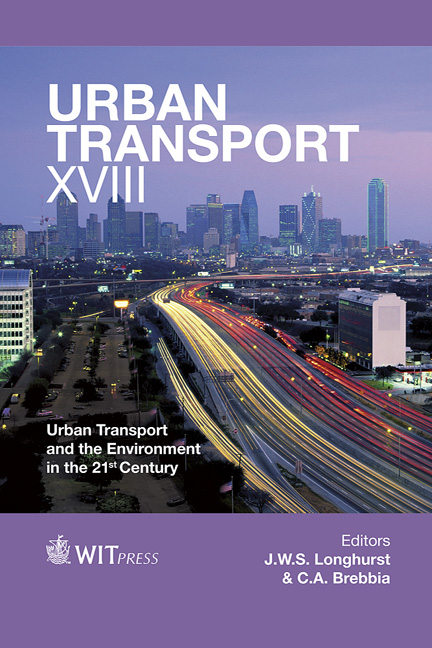Integration Of Transport Networks Based In Spatial Data Management: A Methodological Essay On The Metropolitan Area Of Porto
Price
Free (open access)
Transaction
Volume
128
Pages
9
Page Range
699 - 707
Published
2012
Size
1,376 kb
Paper DOI
10.2495/UT120591
Copyright
WIT Press
Author(s)
A. Costa, E. Pacheco & P. Trocado
Abstract
Among other explanatory factors for the worsening imbalance in modal split that has occurred in the last three decades in the AMPorto (considered here with nine counties, according to Law No. 44/91) is a weak competitive capacity of networks of collective use particularly road passenger transport. More than a dozen companies operate in an area of 817 km2, providing a disjointed service and therefore extremely punitive to the population. The Portuguese government is carrying out efforts to gather information from carriers. Still, given the possibilities easily reached by new GIS technologies, we admit that there is a data deficit of integration on a territorial basis, also spread over several institutions, which makes the necessary adjustments difficult, whether the decisions by central government and businesses, or those made by the population. The reflection proposed addresses issues concerning the governance in transport – the desire for integration and practice of fragmentation of networks. It stimulates, from the possibilities offered by GIS, the results of a punitive governmental modus operandi to the operations of public transport. The exercise is based on the cross-interpretation between the results obtained with the Normative Ordinance no 32/2009 and what we believe to have been a missed opportunity of a governance exercise in the transport domain. Keywords: urban transport, integration, information management, governance.
Keywords
urban transport, integration, information management, governance.





